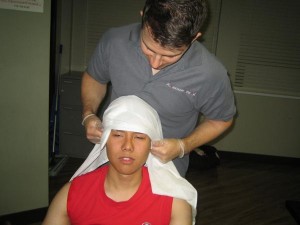It is a known fact that seizures are the manifestation of serious disruption in the brain activity. There are different conditions and disorders that can trigger the seizure activity among adults. The swelling of the brain, injuries and increased pressure as well as chemical imbalances are the usual cases of adult seizure activity. The proper diagnosis of the underlying cause is vital so that the appropriate medical intervention can be given in order to alleviate or control the future occurrence of seizures.
Epilepsy
Epilepsy is basically a disorder in the brain in which the nerve cells occasionally display an irregular increased electrical activity that can trigger a seizure. Some individuals are diagnosed with epilepsy when there is no other condition that can be considered responsible for the occurrence of two or more seizures. A certain percentage of individuals who have epilepsy will continue to experience intermittent seizures despite providing appropriate medical care.
Traumatic injury to the brain

Traumatic injuries to the brain during vehicular accidents, falls and direct blow to the head can lead to bleeding, swelling or physical trauma to the brain. Any of these can cause seizures. It is important that once a seizure occurs right after sustaining a head injury, it is a clear indication of a severe brain injury.
Stroke
When stroke occurs, there is inadequate flow of blood and oxygen to the brain. If there is a clot that disrupts the flow of blood, an ischemic stroke occurs while a blood vessel that bleeds causes a hemorrhagic stroke. Take note that seizures can occur during or right after the onset of a stroke. The swelling of the brain and deprivation of oxygen are the main factors that can trigger the stroke-related seizures. It is important to note that some individuals can develop epilepsy months or years after a stroke due to the stroke-related injury to the brain. Always remember that if an individual is experiencing a stroke, it would require immediate emergency care.
Metabolic problems
Any metabolic problems that cause chemical imbalances can trigger seizures among adults. A common chemical imbalance in the body is hypoglycemia or low blood sugar. The first aid measure for this is to provide the individual with juice to drink. Other usual metabolic disturbances linked with seizures include elevated blood ammonia associated with severe liver disease as well as electrolyte imbalances caused by kidney failure. By correcting the underlying metabolic issues, it will help eliminate the seizure activity.
Brain tumors
When a seizure occurs among adults, it might be an indication of a brain tumor. In some cases, brain tumor is diagnosed among individuals who experienced a seizure. Take note that the brain tumors that usually occur with the onset of seizures include metastatic tumors due to cancer, meningioma and ganglioglioma.
